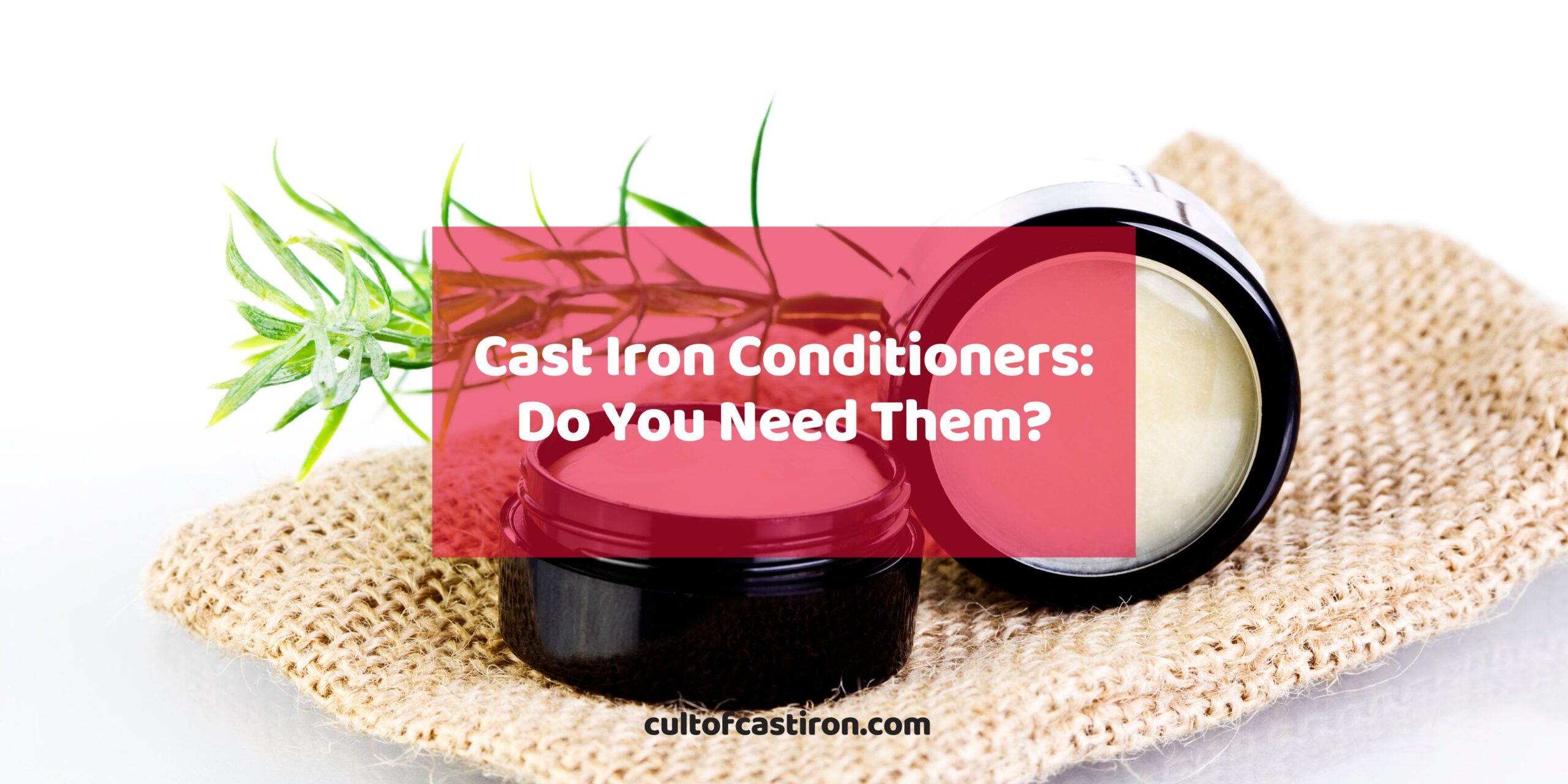Buying cookware is like making an investment. When shopping for kitchen essentials, most people tend to prioritize the durability of a piece to get their money’s worth. Since they’re strong and long-lasting, this is exactly the reason why cast iron cookware are so popular.
But despite their tough build and appearance, cast iron pans actually require great care. Cast iron owners who prioritize the maintenance of their pieces are able to make their pans last for decades and if you’ve recently bought one you should follow suit. To help you maximize your purchase, you might want to consider using a cast iron conditioner.
What is a Cast Iron Conditioner?
A cast iron conditioner is a specialized product used to clean, maintain, and season cast iron cookware. While it’s commonly used for griddles, it can be used to maintain all types of cast iron cookware. Using them regularly will create a non-stick surface on your skillets, preserving your pan’s seasoning while protecting it from corrosion.
What is Cast Iron Conditioner Made Of?
Cast iron conditioners are made of a blend of different cooking oils. The ingredients may vary on a product-by-product basis, but the most common contents would be beeswax and vegetable oils such as flaxseed, canola, and even sunflower oil. Some specialty conditioners may even contain animal fats and other additives to enhance the seasoning and performance of pans.
How to Use Cast Iron Conditioner
Basically, you would use cast iron conditioner just like any other oil you’d use for seasoning. Below is a quick rundown of the seasoning process but if you want a full refresher make sure to check out our all-in-one guide to cast iron seasoning.
1. Apply a coat of conditioner all over the pan
Clean your pan thoroughly and wipe it dry. Afterwards, drop a few dabs of your conditioner and coat the pan’s surface completely.
2. Wipe away excess oil
Take a paper towel or a clean rag and remove excess oils on your pan. Having too much oil will cause your seasoning to flake and will also lead to residue buildup.
3. Heat the pan up to the oil’s smoking point
Assuming that you’re using a stovetop, gently heat your pan until the oil emits a light-colored smoke. If the oil piles up on one side, make sure to evenly spread it out using a paper towel. Continue until the oil dries up.
4. Apply a second coat of conditioner
Once your skillet dries up, apply another coat of oil and spread it across your pan’s surface. Once it cools down, you can safely tuck it away for storage. But in case you want to add another layer of seasoning, you can repeat the process above as many times as you want.
Do You Actually Need a Cast Iron Conditioner?
Not necessarily. It’s not a requirement to season your pans with a cast iron conditioner but considering its benefits it’s definitely nice to have product in your shelf. However, there’s no denying the fact that there are some cast iron owners who are a bit reluctant to use them.
Some users are still a bit skeptical as to whether cast iron pans actually improve the non-stick performance of skillets better than regular oils. At the same time, it also doesn’t help that cast iron conditioners are a bit more expensive than regular oil. At the end of the day, experience with a product can depend on a lot of factors so there’s nothing wrong with trying it out!
What Can Be Used as An Alternative To a Cast Iron Conditioner?
Any other type of cooking oil can be used to season a cast iron pan. But in case you want to mimic the effects of a cast iron conditioner, you can create your own blend by mixing beeswax with other kinds of plant-based cooking oils. Just make sure to season and apply it properly for maximum results!
Lost-lasting and Well-conditioned Pans!
As mentioned previously, purchasing cookware is like making an investment. You’d want to get the most out of your purchase and you can accomplish this by staying proactive with maintenance.
With proper use, applying cast iron conditioners to your skillets will make them last a lifetime. But whether you end up using them or not, the important part is that you regularly maintain and season your cast-iron pans. If you’re itching to learn more about cast iron pans, make sure to visit the Cult of Cast Iron blog for all things cast iron!

Miguel is a cast iron enthusiast from Cavite, Philippines. He works in the digital marketing field as a content marketing strategist. On the side, he manages a small online bookstore and tends to his plants.

